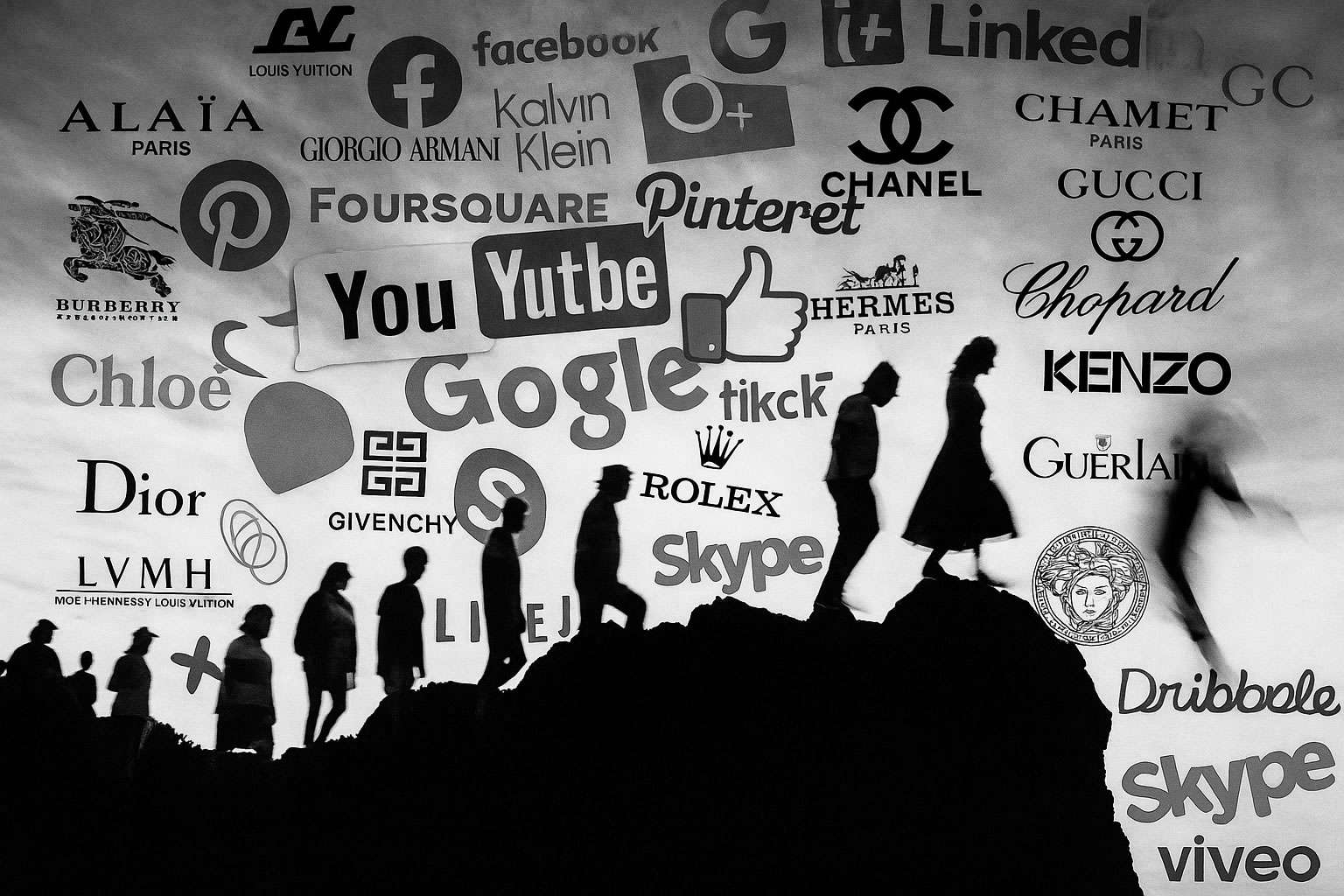As I sat in my seat on the airplane, watching passengers board, a striking thought took hold. Every race, every creed, and nearly every continent had a representative here. Different colors, languages, and customs filled the cabin—an authentic hodgepodge of human diversity.
Yet amid all this difference, one thread bound everyone together: brands.
Nike, North Face, Adidas, Chanel—it didn’t matter if they were original or knock-offs. Their presence was universal. In a space where nothing else pointed to a shared national or cultural identity, the logos did. This is the face of globalism.
These aren’t just clothing brands. They are ideologies, identities, influences. Chinese, Mexican, European, Middle Eastern, Muslim, Christian, Hindu, Jewish—it doesn’t matter. Everyone wears the brand. Everyone is affected.
And the branding goes deeper than clothing. Social media is perhaps the most powerful brand of them all. Platforms—each with their own ideology and algorithms—don’t just connect us; they condition us.
I call them the Transformers.
They transform ideas into stories, messages, memes. They reduce complexity into emojis and sound bites. They deliver these packets of “accepted thought” from the corporate brain to the minds of the masses. And in doing so, they transform users into followers—eager recipients trained to react, not think.
Reactions come quickly now. A like. A comment. A share. A laugh. A rage emoji. A fleeting expression of sentiment, followed by the next fleeting expression. Ubiquity is the medium. Confusion is the result.
New slangs, new meanings, and new contradictions pour in daily—often changing multiple times a day. Words no longer mean what they used to. Concepts are fluid. Identity is fluid. Attention spans are minuscule. This is the free fall of humanity.
In this attention economy, everyone is an entertainer. Platforms promise payouts, and millions chase virality. Young people become show hosts. Most of what’s created is disposable—content for the sake of content, adding to the ever-expanding landfill of digital noise. The valuable, the meaningful, is buried, if not actively suppressed by the Transformers.
The old media monopoly has collapsed. But in its place is a bazaar of noise—news, views, and reviews from anyone and everyone. Truth is optional. Expertise is replaced by popularity. Contradiction is expected. And corporate architecture still governs it all.
Wear the shoes they make. Listen to their music. Watch their videos. Think their thoughts. Speak their slogans. Live the life that the corporation has designed.
Egalitarianism—brought to you by the brand.
But as if that wasn’t enough, now we have AI.
AI promises to help us keep up—summarize our news, highlight our books, finish our thoughts. But what it really offers is streamlined obsolescence. It tells you what it’s trained to tell you, by those who designed it—the corporation. It reshapes reality to fit the narrative. And in doing so, it pushes you further from being fully human.
Instead of making, building, thinking, or crafting, we skim. We scroll. We react.
We produce content. We consume content.
And most of it is worthless.
Meanwhile, those with real-world skills—those who can write, build, repair, create—are disappearing. Why labor, when you can profit from performance?
But this isn’t oratory. It isn’t journalism. It’s the weaponization of ignorance, monetized and celebrated. Human creativity is sidelined in favor of shallowness, entertainment, and compliance.
And soon, the inevitable:
“Humanity is obsolete. Being human is old-fashioned. Complete yourself by merging with the machine.”
Welcome to the abyss.
